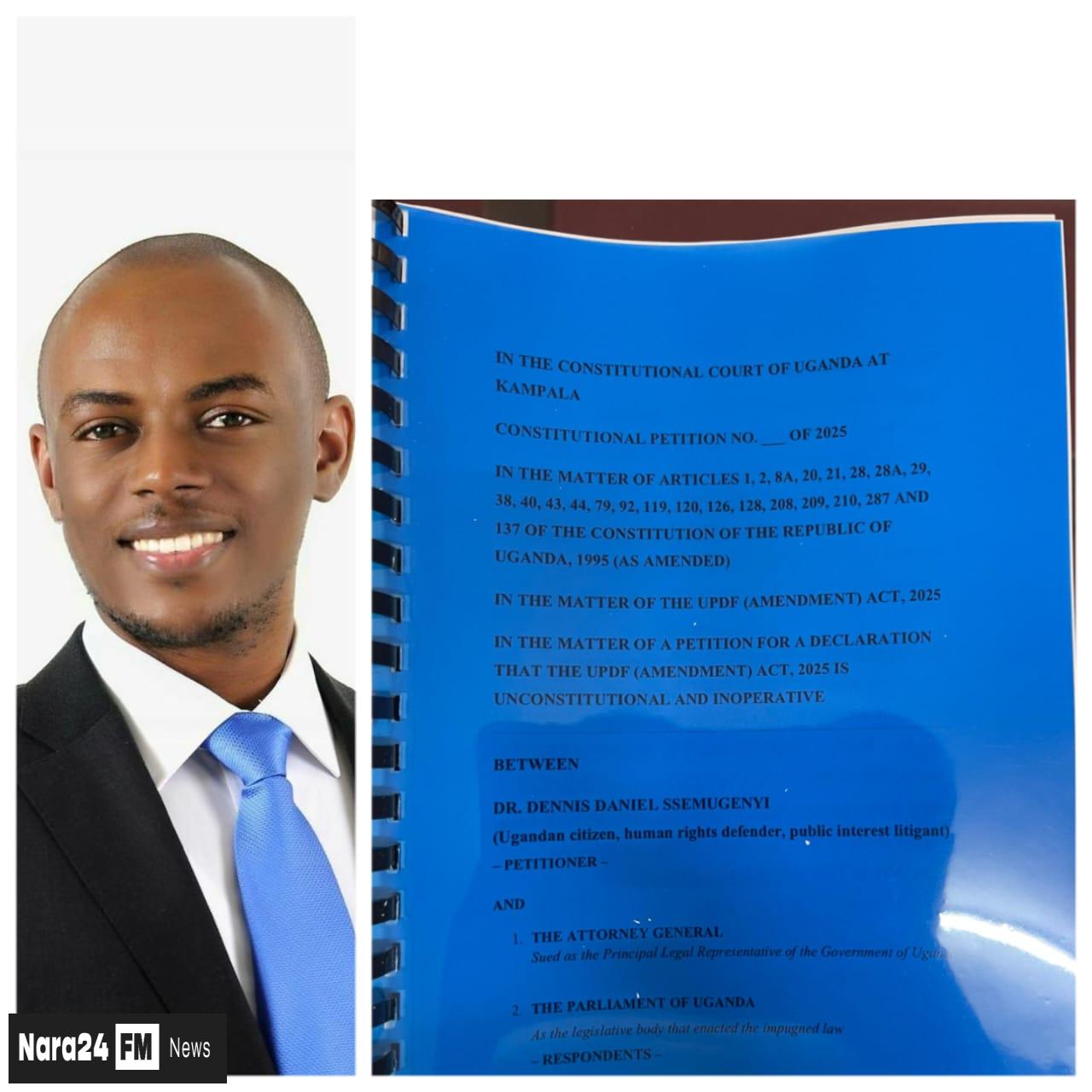
Uganda's U20 Women's Team Advances to Final Qualifying Round with Win Over Zambia
Uganda's U20 women's team has booked a place in the final qualification round of the FIFA U20 Women's World Cup by defeating Zambia.
Dr. Dennis Daniel Ssemugenyi files a constitutional petition against the UPDF (Amendment) Act, 2025, arguing it violates key constitutional principles and undermines civilian rights.

In a bold move to uphold constitutional principles, Dr. Dennis Daniel Ssemugenyi, a prominent human rights defender and public interest advocate, has petitioned Uganda's Constitutional Court to challenge the recently enacted UPDF (Amendment) Act, 2025. The petition argues that the law is unconstitutional and void from its inception, citing violations of fundamental rights and democratic principles.
The contentious legislation, which permits military courts to try civilians, has sparked widespread debate since its passage. Dr. Ssemugenyi contends that this provision breaches Article 28(1) of Uganda's Constitution, which guarantees the right to a fair hearing before an independent and impartial civilian court. Additionally, he highlights concerns over the balance of power between military and civilian institutions, raising alarms about the potential erosion of democratic norms.
The petition further alleges that the UPDF (Amendment) Act undermines judicial independence and separation of powers, principles enshrined in Articles 119, 120, and 126 of the Constitution. Dr. Ssemugenyi also criticizes the law’s passage by a parliament he claims is not proportionately representative of Uganda’s population. Citing Article 63(3), he argues that the current constituency framework is deeply flawed, with significant disparities in population representation.
“Some constituencies have as few as 59,000 inhabitants, while others exceed 150,000, creating an artificial supermajority that facilitates the passage of contested legislation,” Dr. Ssemugenyi explained. He emphasized that such imbalances undermine the principle of equal suffrage and distort the sovereign will of the Ugandan people.
In his petition, Dr. Ssemugenyi calls on the court to declare the UPDF (Amendment) Act unconstitutional, reinforce protections against military trials for civilians, and initiate electoral and legislative reforms to ensure equal representation. “This is not a protest—it is a patriotic duty to stand for justice, fairness, and constitutional supremacy,” he stated in a press release.
The case is expected to have profound implications for Uganda’s democracy, human rights, and the rule of law. As the Constitutional Court reviews the petition, its decision will be closely monitored by both Ugandans and international observers. Dr. Ssemugenyi remains steadfast in his commitment to ensuring that law, liberty, and leadership align in Uganda’s governance framework.
Comments (0)
Leave a Comment
Be the first to comment on this article!